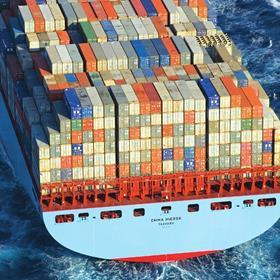
International shipping giants have invested heavily in Vietnam’s nascent maritime industry, giving a country short on infrastructure a boost in trade competitiveness.
Local groups, however, have expressed concern these giants of the sea have been given too much control, which could ultimately harm the interest of Vietnamese traders, reports VNA.
Foreign investors funded the construction of 10 large container ports in the Southern Economic Zone, planned to start operating in 2009-2010. Investors include Hong Kong International Terminals (HIT) of China, SSA Marine of the US and CMA-CGM Group of France.
The Dubai World Corporation, the second largest marine terminal operator in the world, also began building a deep-water port in the Nha Be district intended to be one of Ho Chi Minh City’s main shipping routes.
The foreign giants have offered Vietnam capital, experience and management skills not in abundance in the developing nation, and local groups have ceded much management control to that experience in joint ventures.
The Vietnam Seaports Association (VPA) has predicted by 2010 foreign investors will only control up to 45 per cent in each joint venture, but will hold about 56 per cent of management power.
“Many big domestic firms have conceded management rights to international giants in joint ventures, as they mainly contributed land,” said Ho Kim Lan, the VPA general secretary.
He says most small ports are owned by local companies, but foreign groups hold stakes in all the largest ports.
The concerns voiced by local shipping groups are, for the moment, being drowned out by the joyful cries of economists, who have seen annual growth in Vietnam’s maritime sector of 20-25 per cent.
It’s undeniable the flood of foreign capital has rocketed the country’s ports to a position of international competitiveness, but Mr Lan worries if the foreign companies reach an oligopoly they could collude to fix prices.
For the moment, however, he says competition between local players and the international port operators should limit price rises.






No comments yet